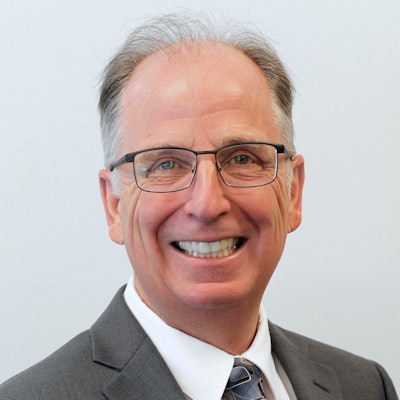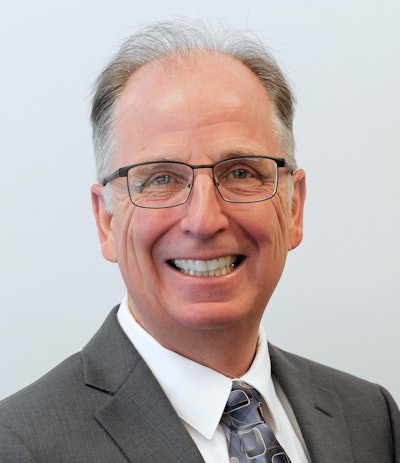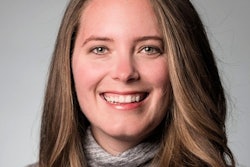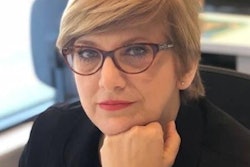
If your goal for 2021 is to build your dental practice, begin by becoming more self-aware. As dentists, we can get lost in the technical aspects of our work, thinking of ourselves only as clinicians. Often, our sole desire is to "just do dentistry." In truth, having a successful dental practice involves much more than just doing excellent dentistry. As a dentist, we wear three hats. In addition to being the major producer in our practices, we are the manager as well as the leader. Being aware of these three hats is the first step toward having a successful dental practice.
 Dr. Robert Maguire.
Dr. Robert Maguire.Bill George, former CEO of Medtronic and a professor at Harvard Business School, said that self-awareness is the starting point of leading our organizations. Self-awareness is the knowledge of our desires, goals, communication style, emotions, and values. I believe that being aware of these aspects allows us to lead our teams and communicate with our patients with more authenticity and integrity, the byproduct being practice growth.
In November 1998, after spending three years as a Navy dentist and three years as an associate, I purchased a very busy solo private practice. When I first started out, I didn't know who I was or why I was doing what I was doing. For a year and a half, I operated blindly in that survival mode, running from chair to chair. In January 1999, in spite of increasing my fees 5%, my practice still did not grow. My schedule was out of control, I spent little time developing my team, and I spent no time getting to know my patients. I would often work 10-hour days, working straight through my lunch. I'd see mostly emergency patients and go home at the end of the day discouraged and exhausted from putting out fires all day long. The good news is that the following year, my life improved and my practice started to grow when I became more self-aware of my thinking and my behavior.
Here are five steps I took to increase my self-awareness and subsequently grow my practice.
1. Slow down
The biggest obstacle to my practice growth was the fact that I never stopped to rest or to think about my goals, dreams, or desires. Slowing down helped me focus and answer questions such as the following:
- What do I want to achieve with my practice, team, and patients?
- What type of dentistry do I want to be doing?
- What am I doing well?
- What aspects of my behavior do I need to change?
2. Write it down
Once I figured out what I wanted to accomplish personally and professionally, I wrote it down and then tracked my progress. On my "dream sheet," I had three categories: technical, managerial, and leadership.
Under the technical category, I listed things like developing a new-patient exam or learning more about occlusion and comprehensive care. Managerial-wise, I sought help from consultants to help me streamline my systems and develop my team. As far as becoming a better leader, I enrolled in the Dale Carnegie Course and read several leadership books by authors like John Maxwell, Stephen Covey, and Max DePree, to name a few.
3. Personality assessments
Understanding my personality and how I communicated with myself and others was the most significant step in my professional and practice growth. Over the years, I took assessments like Myers-Briggs and the Enneagram. However, it was the DiSC (dominance, influence, steadiness, and conscientiousness) personality assessment that helped me become a better communicator. It was simple, straightforward, and easy to apply. It was the assessment I used over the years to help build my team.
When I think of the benefits of DiSC, three words come to mind: identify, modify, and electrify. DiSC helped me identify not only my communication style but also the style of others. It taught me that if I wanted to connect with my team members and my patients, I had to modify my style to match theirs. If they talked fast, I talked fast. If they liked knowing lots of details, then I gave them lots of details. Electrify referred to the energy that occurred as the result of making better connections with them. Those stronger personal connections led to closer relationships, closer friendships, increased trust, and, as a result, increased team harmony and patient acceptance of treatment.
4. Open yourself up
Of all the steps, this one took the most courage. In this step, I invited trusted friends to speak truthfully to me. Seeking their candid and honest straight talk helped me see that I needed to become a better listener. They helped me see that I was self-absorbed and came on too strong. When I spoke with others, I was too direct, quick to judge, too intense, and needed to soften my delivery. I was grateful for their honesty. At the same time, I was shocked at how blind I was regarding the way I came across to others.
5. Develop your team and feedback at work
The last step involved taking this self-awareness information and using it to develop my team. Over the years, all team members were given the DiSC assessment. In addition, through regular team meetings and trainings, we used DiSC to enhance our patient communication. We also developed informal and formal ways to give each other feedback regarding our strengths, weaknesses, and blind spots. With Google and other technology, patients were able to provide us with honest feedback. In the end, our practice grew because we grew collectively, professionally, and as individuals. It confirmed a saying I have always believed in: "Personal growth leads to team growth that results in practice growth."
In reality, it wasn't the fee increases or the streamlined scheduling alone that caused my practice to grow significantly over the years -- it was the increase in our self-awareness. Being more self-aware, I became a better dentist, a better manager of my practice, and a better leader for my team. Over the years, my private practice consistently grew financially. The only year my practice stayed the same was 2009, due to the Great Recession.
Do you want to build a great practice? Start by building your self-awareness using the above steps. Know that this exercise is not "one and done"; it's a lifelong process. Without it, you will never effectively lead your team nor experience growth. With it, you will have more fun, be more fulfilled, and move faster toward growing your practice.
Dr. Robert Maguire is a dental speaker, coach, practice consultant, and DiSC (dominance, influence, steadiness, and conscientiousness) trainer who is passionate about leadership and communication. If you'd like more information about him and how he can help you and your team communicate better, visit his website or email him at [email protected].
The comments and observations expressed herein do not necessarily reflect the opinions of DrBicuspid.com, nor should they be construed as an endorsement or admonishment of any particular idea, vendor, or organization.



















